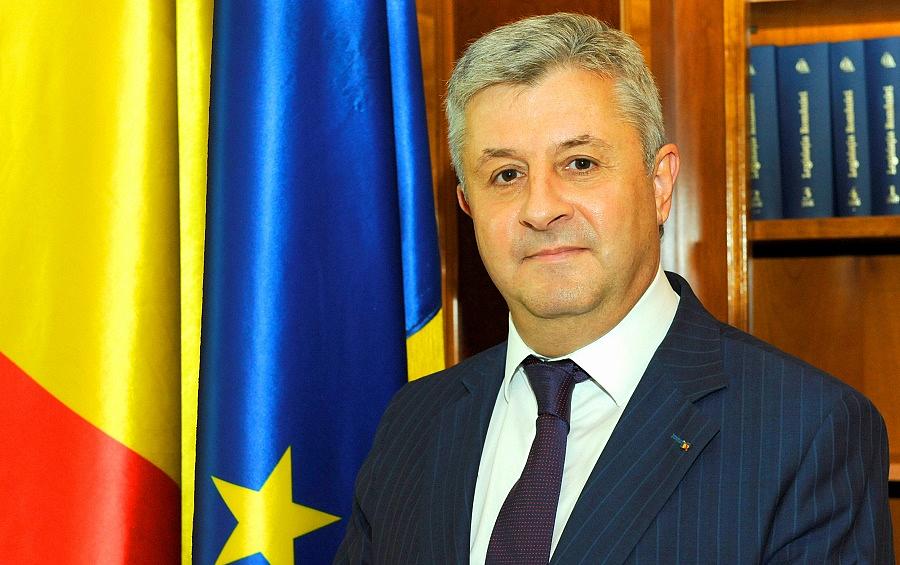Romania’s justice minister promises to eliminate unclear provisions in justice bills



Romania’s justice minister Florin Iordache announced that he would present to the Government some “coherent measures” related to the criminal law, after public consultations on the prison pardon and the changes to the Penal Code on Monday.
He said that he would take into consideration the observations submitted by the participants to the public consultations held at the Justice Ministry’s headquarters. “For the two draft bills, we have received over 3,000 requests from individuals and associations. We will analyze the proposals,” Iordache said, according to local Agerpres.
He added that all the unclear provisions as well as those that create discrepancies in the two bills would be eliminated. “I don’t want to say what we will eliminate and if we eliminate and how they will look like,” he said. He added that only after he finalizes the new draft bills he will talk to Prime Minister Sorin Grindeanu to decide the next steps on how to get the bills approved.
At the beginning of the consultations, the justice minister said that the bill on pardoning several categories of convicts would not apply to violent criminals, such as murderers and rapists, or to people convicted for corruption.
The initial draft bill, which the Justice Ministry published on Wednesday, January 18, provided that inmates with sentences under 5 years would be pardoned, with the exception of violent criminals and other categories. The bill also ruled that inmates over 60, pregnant women, and inmates with children under 5 in their care would have half of their sentences cancelled. In this case, there were no exceptions for the pardoning, so the measure included violent criminals as well as those convicted for corruption. Moreover, the draft bill also pardoned those with suspended sentences, despite its declared goal of solving the problem of overcrowded local prisons.
As for the changes to the criminal law, Iordache said that these were only aimed at fixing some provisions in the Penal Codes as recommended by the Constitutional Court. He added that the Constitutional Court has found six new articles in the law that need fixing, in addition to the six that the Justice Ministry already included in its new bill. Thus, the new draft bill will try to fix all these articles at the same time.
However, top people in the justice system, civic associations, and journalists showed that the bill would decriminalize some important corruption crimes and make it harder for prosecutors to investigate others. For example, abuse of power would only be a criminal offense if the damage to the state budget were higher than RON 200,000 (EUR 44,400) and only if the damaged institution filed a complaint. Thus, if a mayor damaged the City Hall he would have to file a complaint against himself in order to have the crime investigated, according to a point of view presented by the National Anticorruption Directorate (DNA).
The arbitrary provisions in the two draft bills determined many to say that they were aimed at helping some local politicians get out of their ongoing convictions and corruption investigations. The leader of the Social Democratic Party (PSD), Liviu Dragnea, and other politicians and local officials would have benefited from the two bills.
This determined a firm reaction from President Klaus Iohannis, who first crashed a cabinet meeting to make sure that the Government wouldn’t approve the these measures by emergency ordinance without any consultation, and then asked the Government to withdraw these initiatives.
The President renewed his request on Monday morning, after unprecedented protests in Bucharest and other big cities in Romania, and after international reactions from Germany’s Chancellor Angela Merkel, the European Commission, and foreign embassies.
The pressure determined PSD leader to distance himself from the Government’s initiative and claim that he had no clear knowledge of what the cabinet wanted to do with these bills. Prime Minister Sorin Grindeanu also took a step back on Sunday evening saying that he was waiting for a concrete proposal from the justice minister.
With all eyes on him, on Monday, justice minister Florin Iordache had an unclear position. He didn’t answer any of the remarks presented by the participants to the public consultations, some of which were favorable to his proposed measures. He only said that he would take into account the observations received and that the new draft bills would be coherent.
Some participants to the consultations asked for a longer period to debate these important measures while others suggested that any debate should be postponed until after the referendum proposed by President Klaus Iohannis. The referendum’s goal is to see if Romanians continue to support the country’s anticorruption fight.
Some participants even asked for the justice minister’s resignation for trying to pass these important changes to the judicial legislation without any consultation.
editor@romania-insider.com